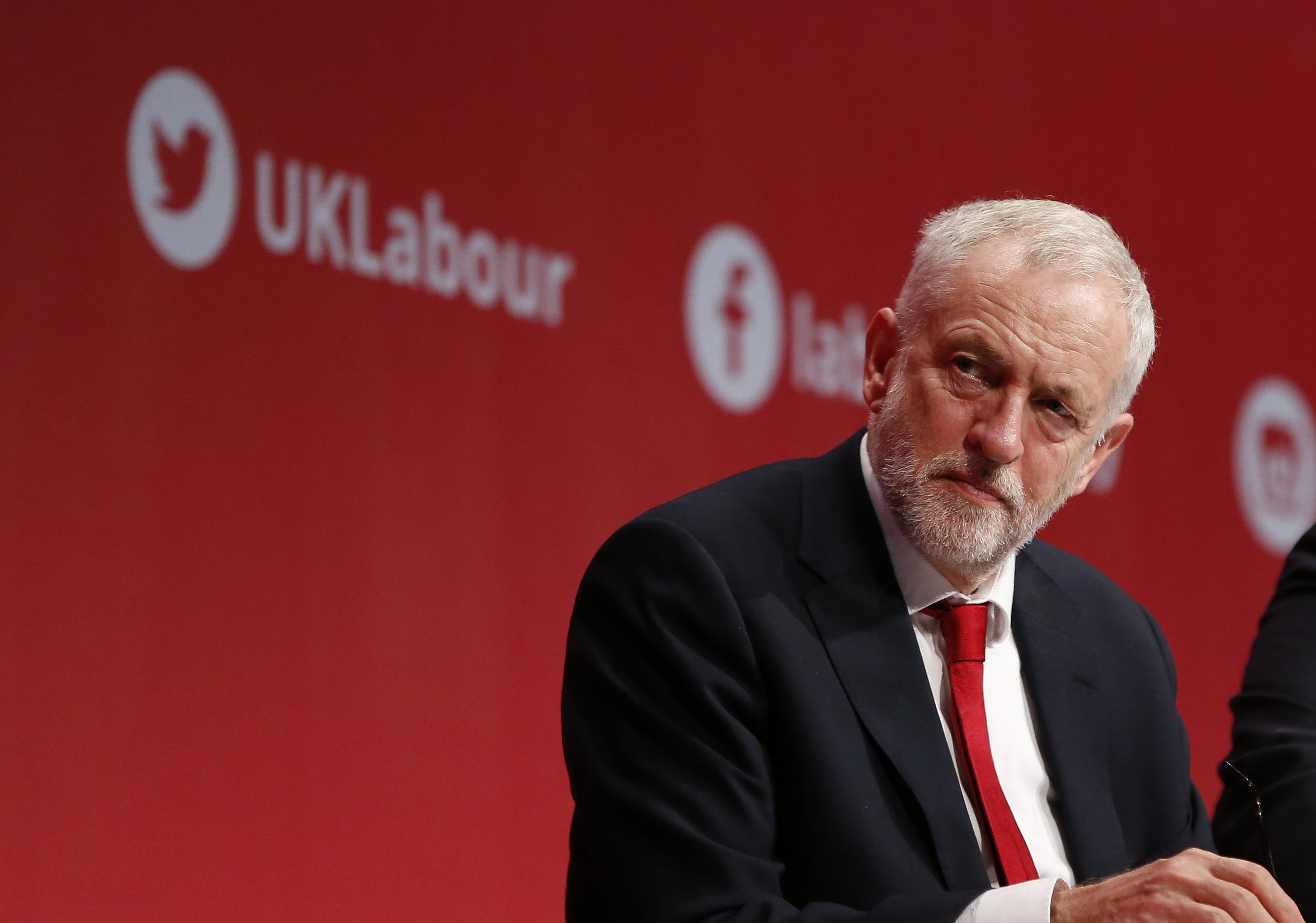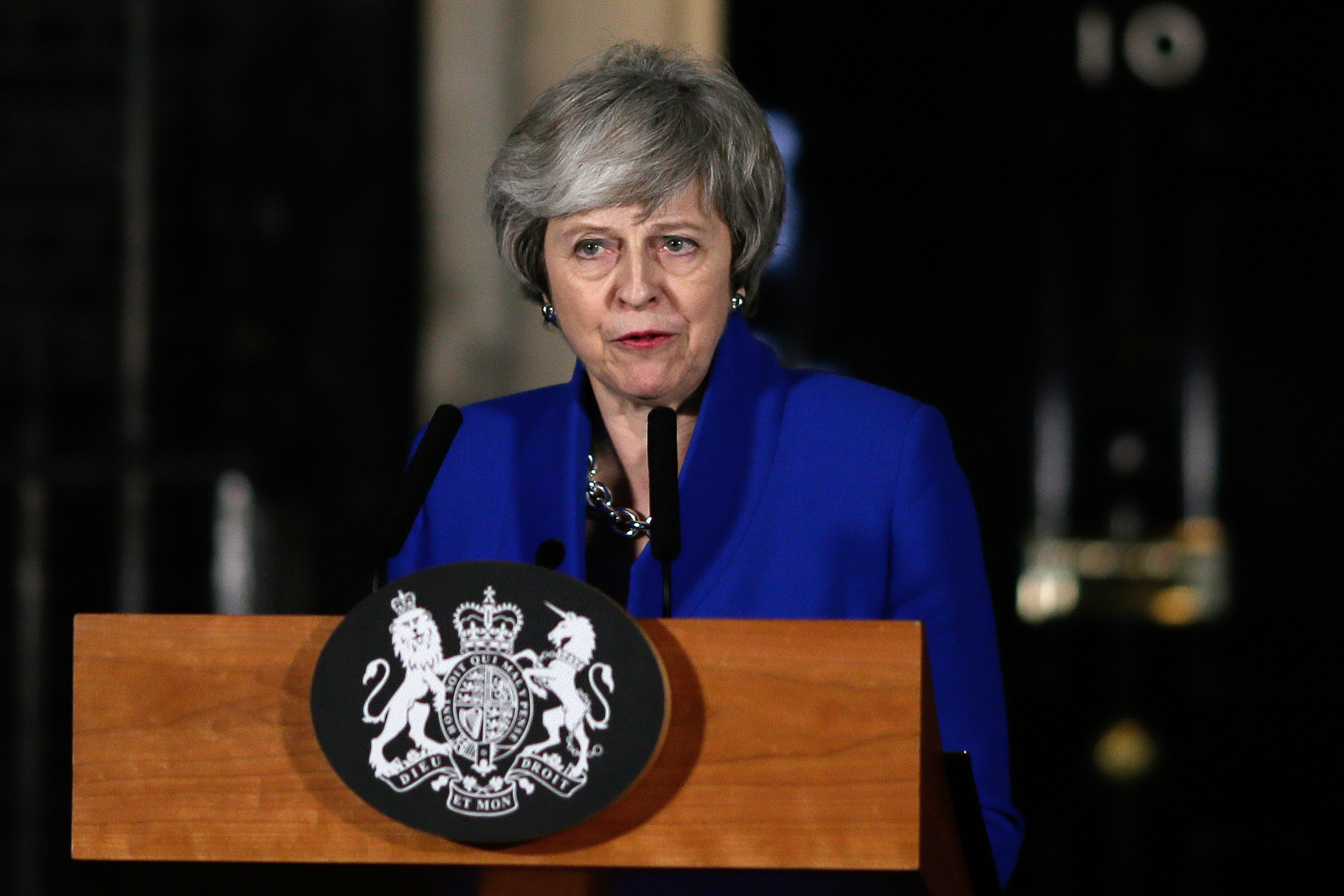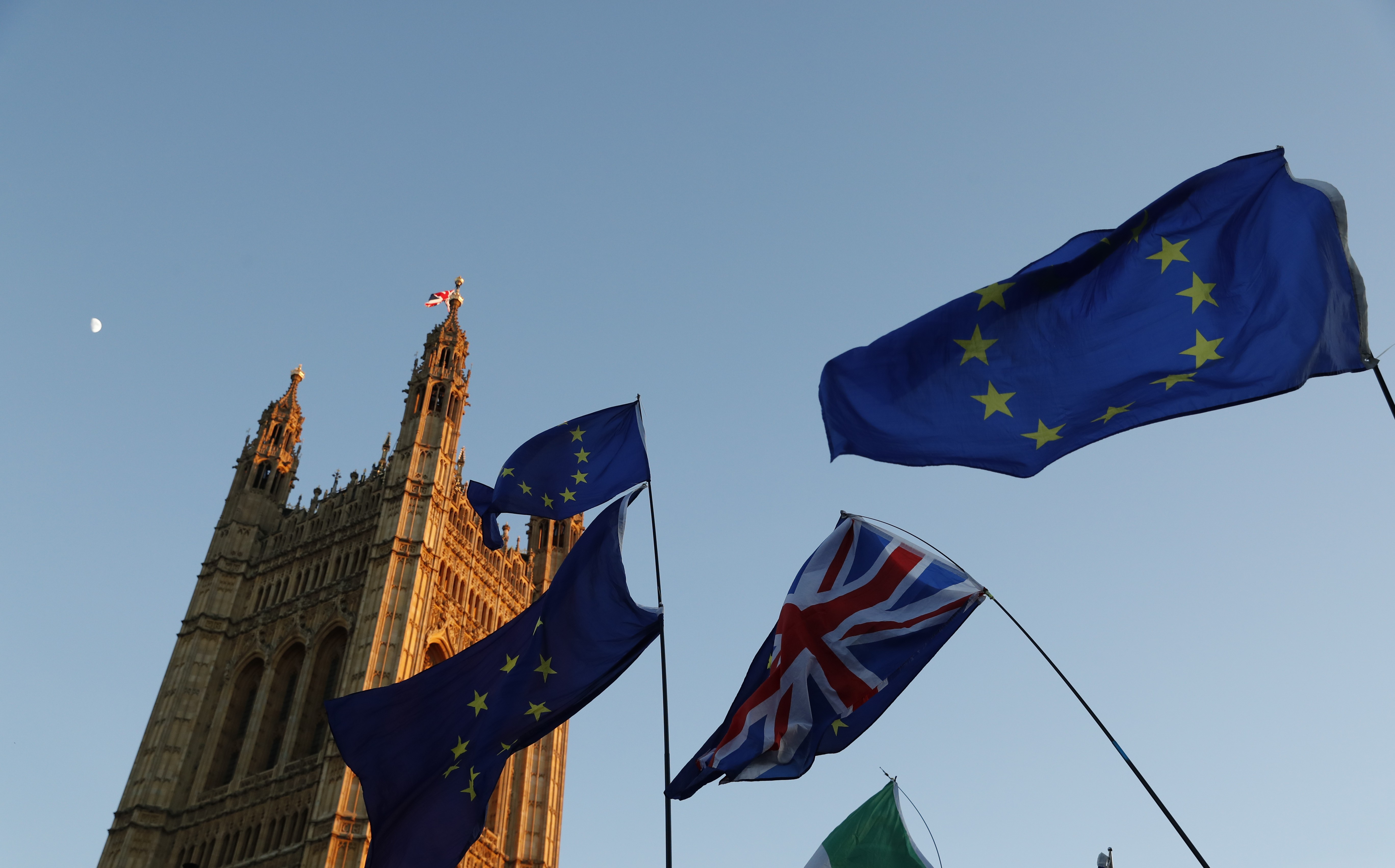More turmoil in British politics as 7 Labour MPs quit their party
- By Heiko Khoo
 0 Comment(s)
0 Comment(s) Print
Print E-mail China.org.cn, February 20, 2019
E-mail China.org.cn, February 20, 2019

A new political formation calling itself the "Independent Group" was launched in London on Feb. 18, comprising seven MPs who resigned from the Labour party over their dissatisfaction with the leadership and the direction in which the party seems to be heading.
The seven MPs concerned are Gavin Shuker, Angela Smith, Chris Leslie, Mike Gapes, Ann Coffey, Chuka Umunna and Luciana Berger. In Britain, an MP can resign from the party in whose name they were elected, and yet still cling to their parliamentary seat.
The seven claim they are breaking new political ground because they represent a combination of "diversity" and "centrist" political values. At a press conference, they stated they could no longer remain in the Labour party under the leadership of Jeremy Corbyn, who they condemn for being too far to the left.
The election of Corbyn as Labour leader in 2015 was nothing short of a political earthquake; prior to this, he had worked in the wilderness for decades alongside a small group of left-wing Labour MPs who campaigned for socialist and internationalist policies.
Since becoming leader, he has faced constant hostility and smears from the media and the British establishment, as well as attempted sabotage, and efforts to unseat him, by the majority of his own MPs.
In 2016, just after the Brexit referendum was held, 172 Labour MPs launched an inner party coup to oust Corbyn. However, the revolt was crushed when he won a head-to-head leadership contest with Owen Smith 62-38 percent.
Chuka Umunna and Luciana Berger are the best-known faces of the new splinter group. Umunna has campaigned tirelessly against Corbyn since 2015. He has also been the most prominent Labour MP behind the so-called "People's Vote" campaign, which seeks to overturn the original pro-Brexit vote by holding another referendum.
Berger has campaigned to smear Corbyn and his supporters as anti-Semites. The endless public attacks on the leadership provoked local party members to initiate moves to deselect these MPs and replace them with representatives whose views are more in line with the socialist ideals and policies Corbyn and the party now advocate.
In 2017, Theresa May called a snap general election hoping to capitalize on Labour's internal conflicts and strengthen the majority of her Conservative Party in the House of Commons. This backfired when Corbyn's campaigning abilities dramatically increased the Labour vote.
It deprived May's government of its majority and strengthened Corbyn's hold over the Labour party. And, for a while, even his most hostile inner party opponents were singing his praises, albeit through gritted teeth.
To stay in office Theresa May struck a deal with the Democratic Unionist Party (DUP), a right-wing Northern Irish protestant party with close historical links to proscribed sectarian paramilitary organizations.
However, when the Irish question assumed center stage in the Brexit negotiations, the government's dependence on the DUP guaranteed the rejection of May's EU deal in parliament. The DUP will not support any deal that weakens Northern Ireland's ties to mainland Britain, as they fear this may lead to Irish unification. In other words, it holds the government hostage.

However, it is a peculiar feature of current British politics that, despite Theresa May's inability to secure approval for her Brexit deal, when Labour moved a no-confidence vote in parliament on January 16, she won 325 vote to 306.
This is because Conservative and DUP MPs share a visceral hatred of Jeremy Corbyn so that they automatically closed ranks to prevent a General Election they feared Labour could win.
The majority of Labour MPs are still hostile to Jeremy Corbyn's leadership. It remains to be seen to what extent the seven MPs' resignations are a prelude to a wider, long-term sabotage. Certainly, we should expect to see other Labour MPs joining this new formation over the next months.
Such Westminster coups are theatrical stage-managed affairs dressed up as seeming popular movements. And it is true that millions stand behind them! At least, potentially. For, in April 2018 it was revealed that Simon Franks, a wealthy businessman, had initiated just this type of campaign in 2016 with about £50 million at its disposal – more money than all Britain's political parties spent during the 2017 General Election.
The objective is to create a "moderate" political movement, which, translated into real politics, is an operation built entirely on hostility to Corbyn's leadership.
Labour Shadow Chancellor John McDonnell has rightly called on the seven MPs to resign their seats in parliament and face new elections, pointing out they were elected on a Labour ticket in 2017.

All seven have claimed that the biggest issue facing Britain for decades to come is Brexit. And they demand that Britain should hold a second referendum "now we know the facts." However, these same MPs simultaneously refuse to let the electorate decide their own fate – "now we know the facts."
In reality they regard the battle against Corbyn as far more important than whether Britain leaves or remains in the EU. In this, they are actually making it more difficult for Labour to unseat the Conservative government.
Heiko Khoo is a columnist with China.org.cn. For more information please visit:
http://china.org.cn/opinion/heikokhoo.htm
Opinion articles reflect the views of their authors, not necessarily those of China.org.cn.
If you would like to contribute and have specific expertise, please contact us at opinion@china.org.cn.





